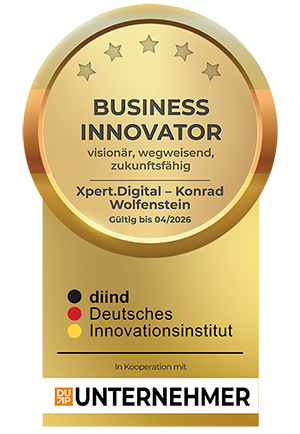Expert advice & insider knowledge

How can you implement a basic SEO strategy for Google that also takes future AI search (AIS - Artificial Intelligence Search) into account?
Excerpt: Technical SEO optimization - fundamentals for the search engines of tomorrow
To develop an effective AIS or SEO strategy that considers both current search engines and future developments such as AI-powered search (AIS - Artificial Intelligence Search), it is important to focus on several core areas. These include the technical optimization of the website, the creation of high-quality content, and the use of data analytics for continuous improvement. A comprehensive strategy covering these aspects is described below.
Technical optimization
A solid technical foundation is crucial for the success of any SEO strategy. This includes:
Website speed
Fast loading times are crucial, as they not only improve the user experience but are also favored by search engines. Tools like Google PageSpeed Insights can help identify and fix weaknesses.
Mobile optimization
With more and more users accessing the internet via mobile devices, your website must be fully responsive. Mobile optimization is not only important for the user experience, but also a ranking factor for search engines.
Structured data
Implementing structured data helps search engines better understand your website's content. This is especially important for AI-powered search, as structured data makes it easier for algorithms to extract relevant information.
Content creation
High-quality content is the heart of any successful SEO strategy. The following points should be considered when creating content:
Relevance and added value
Content should be tailored to the needs and interests of your target audience. It must not only be informative, but also offer clear added value.
Keyword research
Thorough keyword research helps identify the terms your target audience is searching for. These keywords should be organically integrated into the text.
Content formats
Various formats such as blog posts, videos and infographics can be used to target different audiences and increase engagement.
User experience
A positive user experience is crucial for the long-term success of your SEO efforts:
user friendliness
Navigation on your website should be intuitive and easy. A clear structure helps users quickly find the information they need.
Interactive elements
Features such as chatbots or interactive tools can improve the user experience while also providing valuable data about user behavior.
AI-powered search (AIS)
The future of search will be heavily influenced by artificial intelligence. To be prepared:
Natural Language Processing (NLP)
As AI systems become increasingly capable of understanding and processing natural language, content should be designed to work well in spoken language as well. This often means clearer and simpler language.
Voice Search Optimization
With the rise of voice assistants, optimizing for voice search is becoming increasingly important. This requires adapting content to the way people ask questions verbally.
Data analysis and adaptation
Continuous analysis of your website's performance data is crucial:
Analysis tools
Tools like Google Analytics or other SEO-specific platforms offer valuable insights into user behavior and the performance of your content.
A/B tests
Regular testing allows for the comparison of different approaches to determine what works best.
Feedback loops
Collecting user feedback can help identify weaknesses and make improvements.
Future-oriented approaches
To remain future-proof:
Observe technological trends
Stay informed about new developments in AI technology. This includes both software innovations and changes in user behavior.
Maintain flexibility
A flexible strategy allows you to react quickly to changes in the search engine algorithm or the market environment.
By combining these elements, companies can develop a robust SEO strategy that not only meets current requirements but also considers future developments. The integration of AI into the search process will continue to increase, rewarding those who prepare for it early.
Suitable for:

